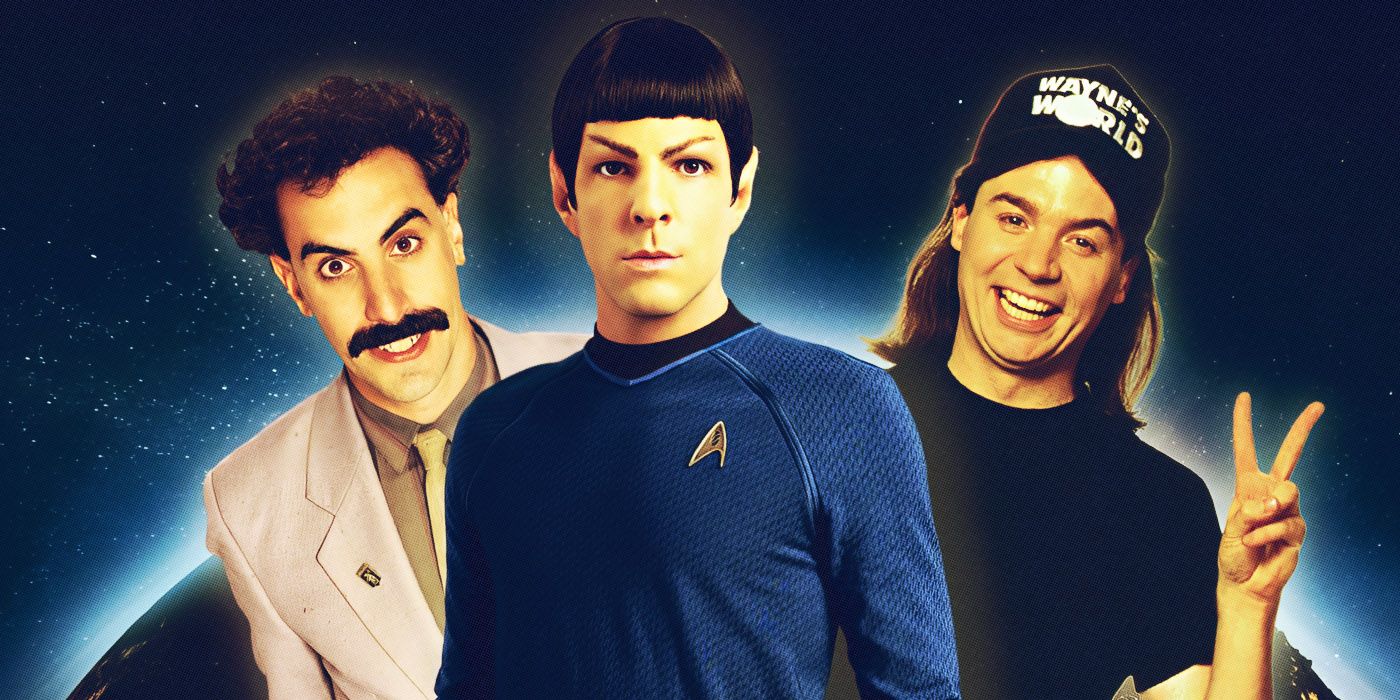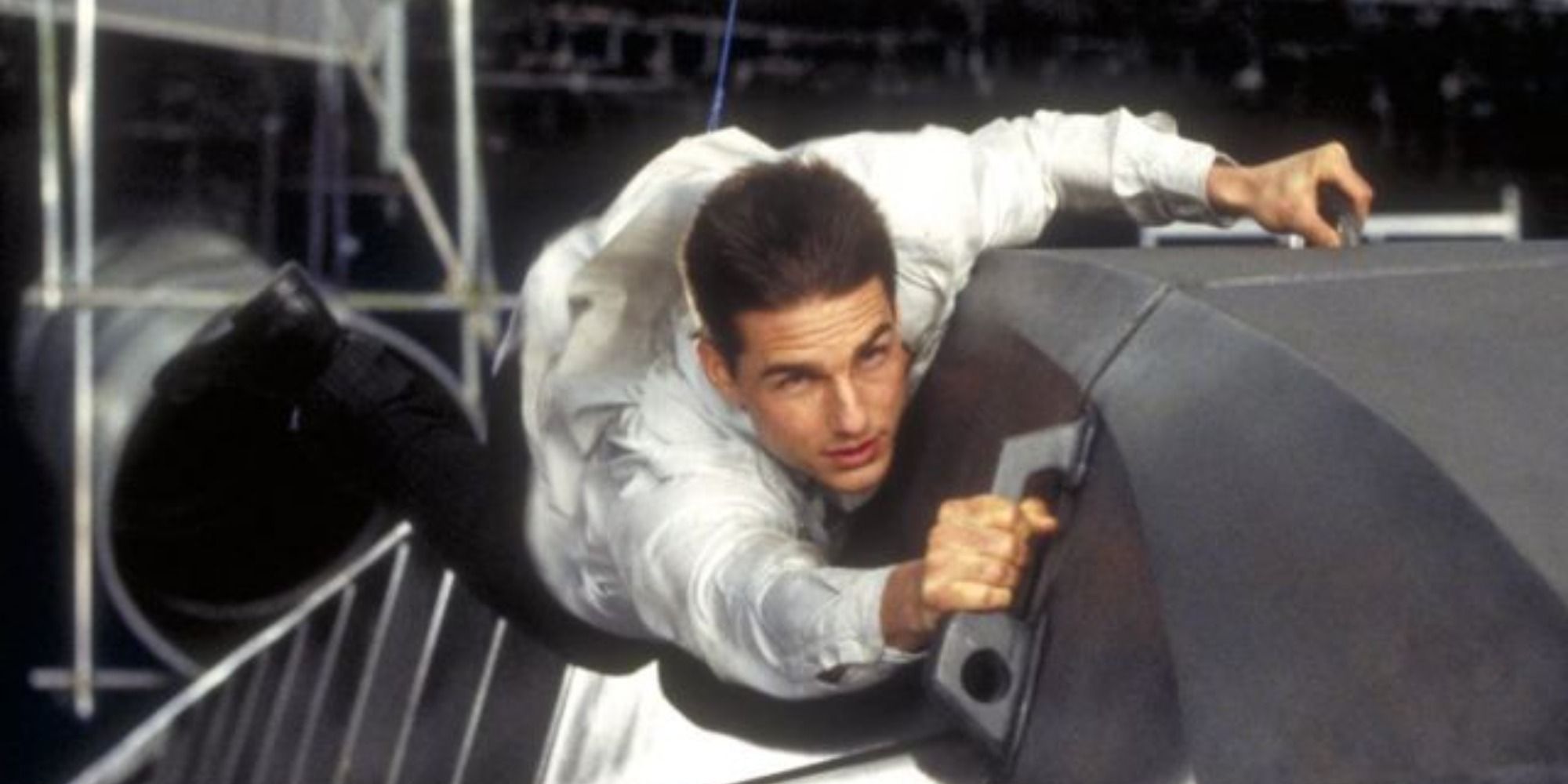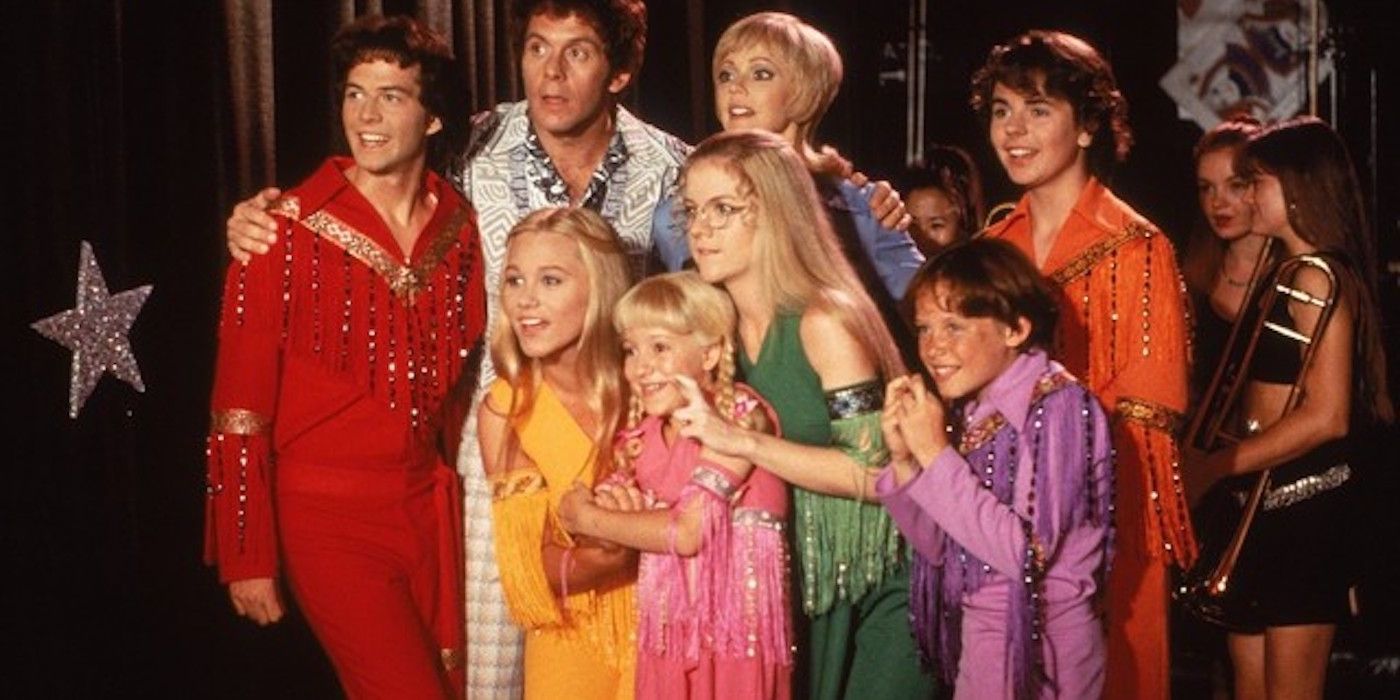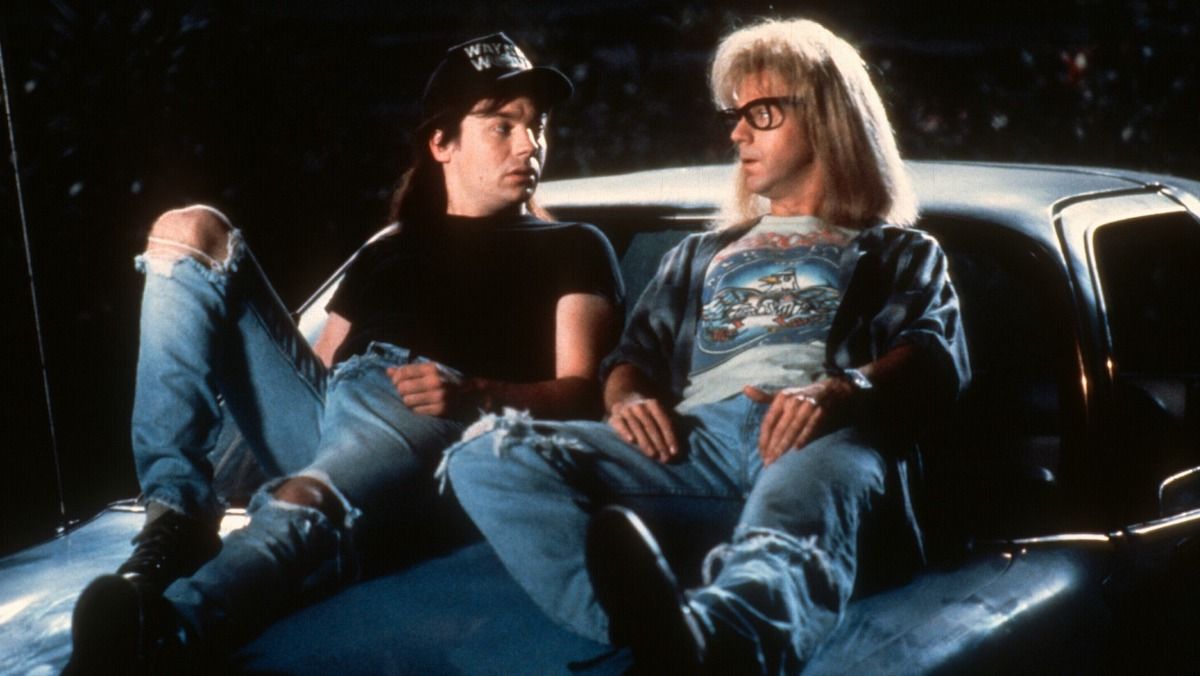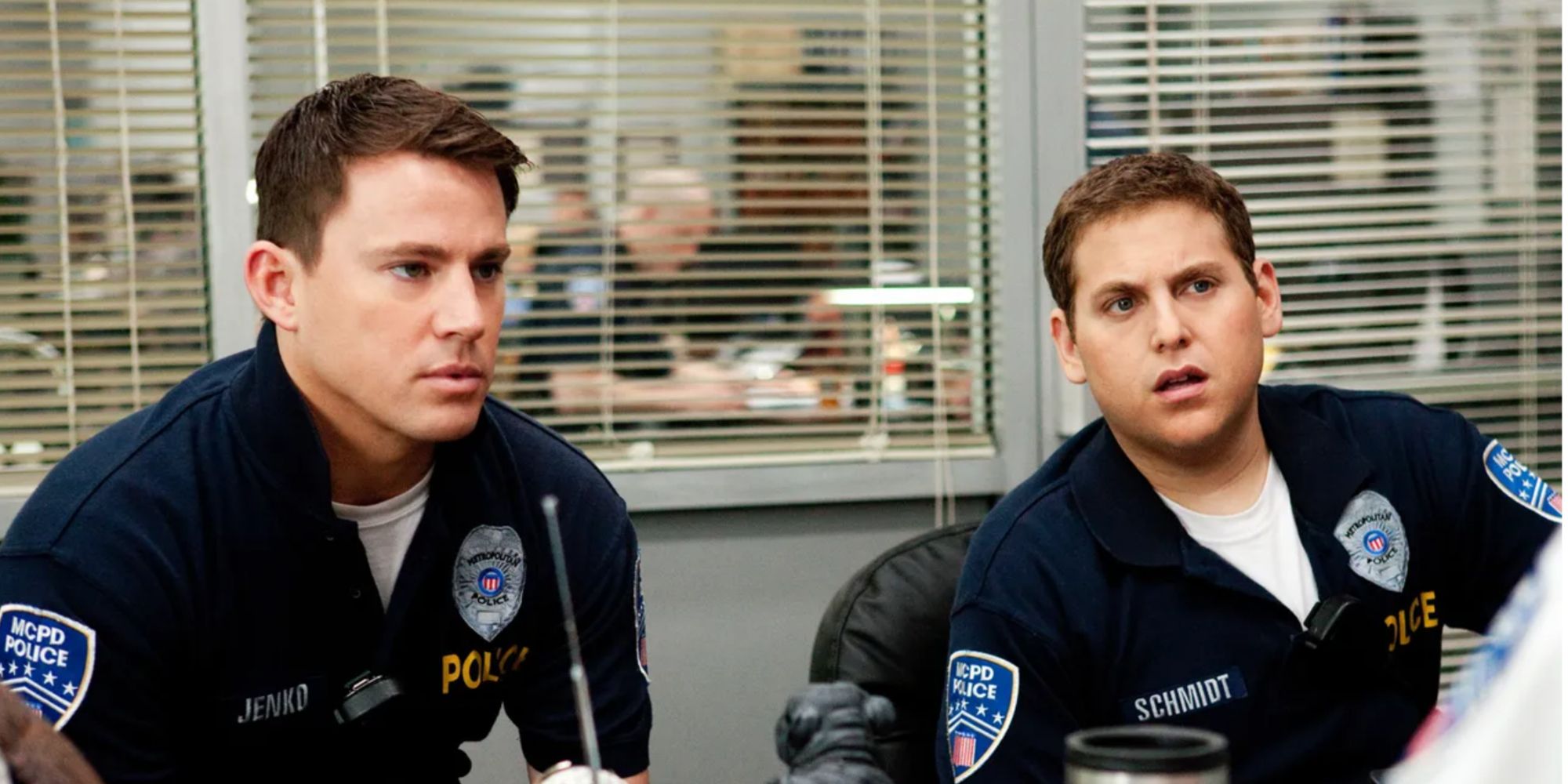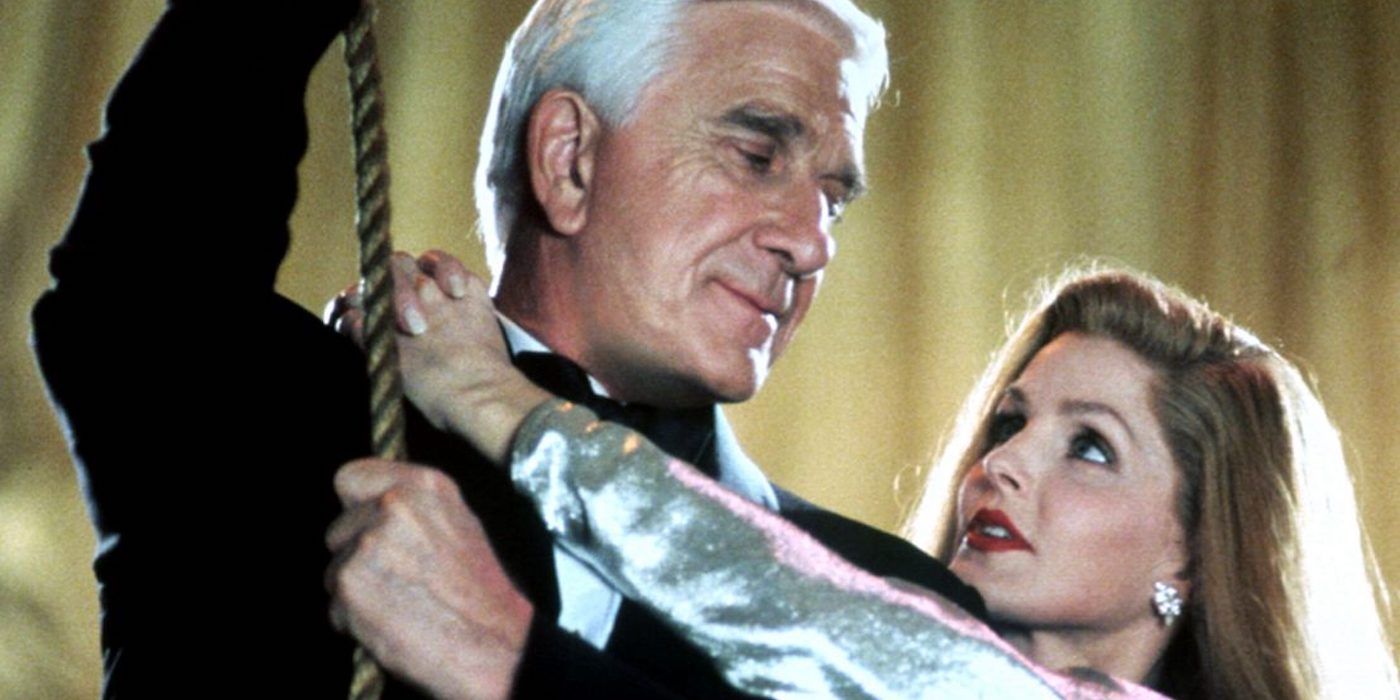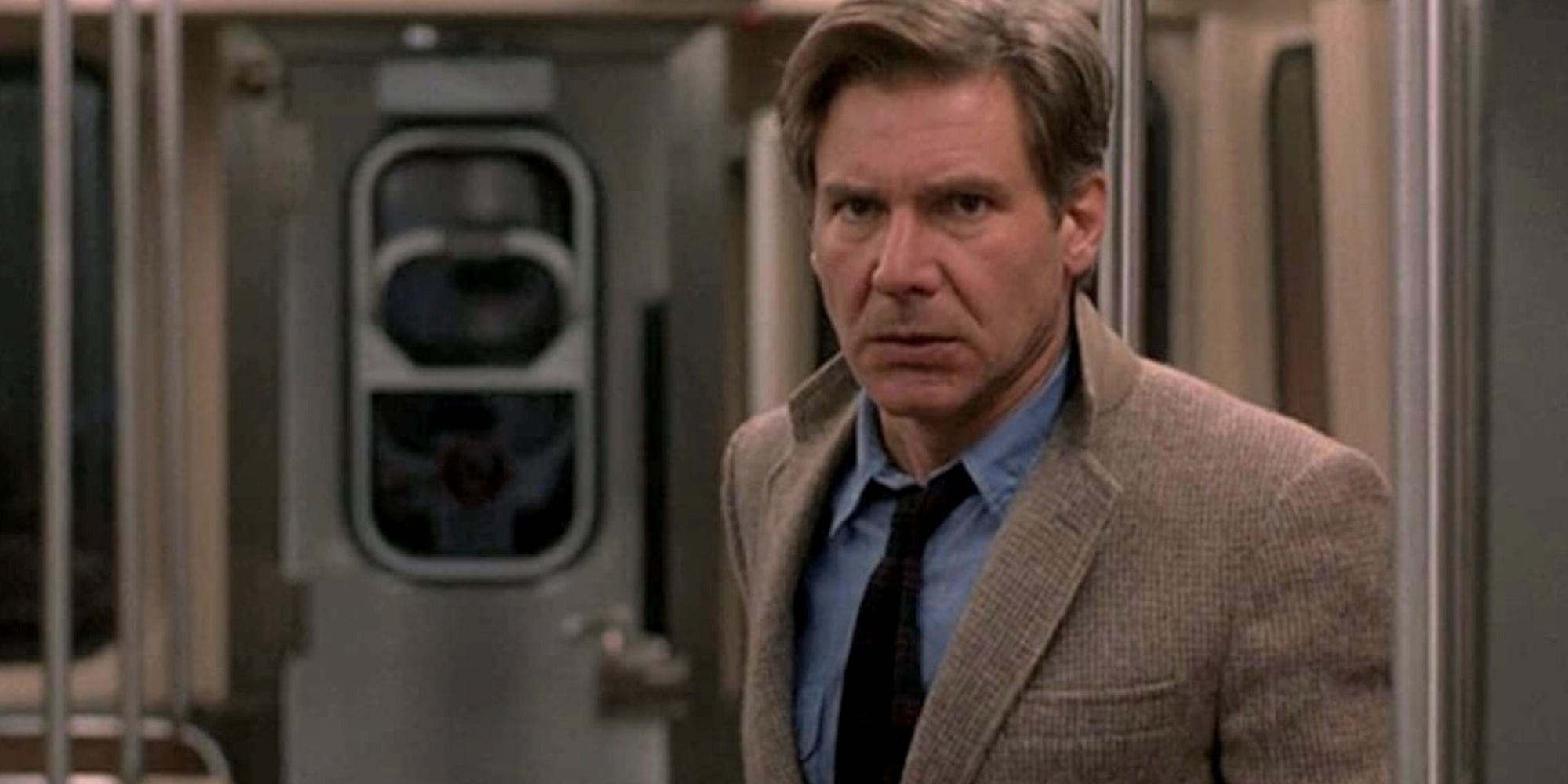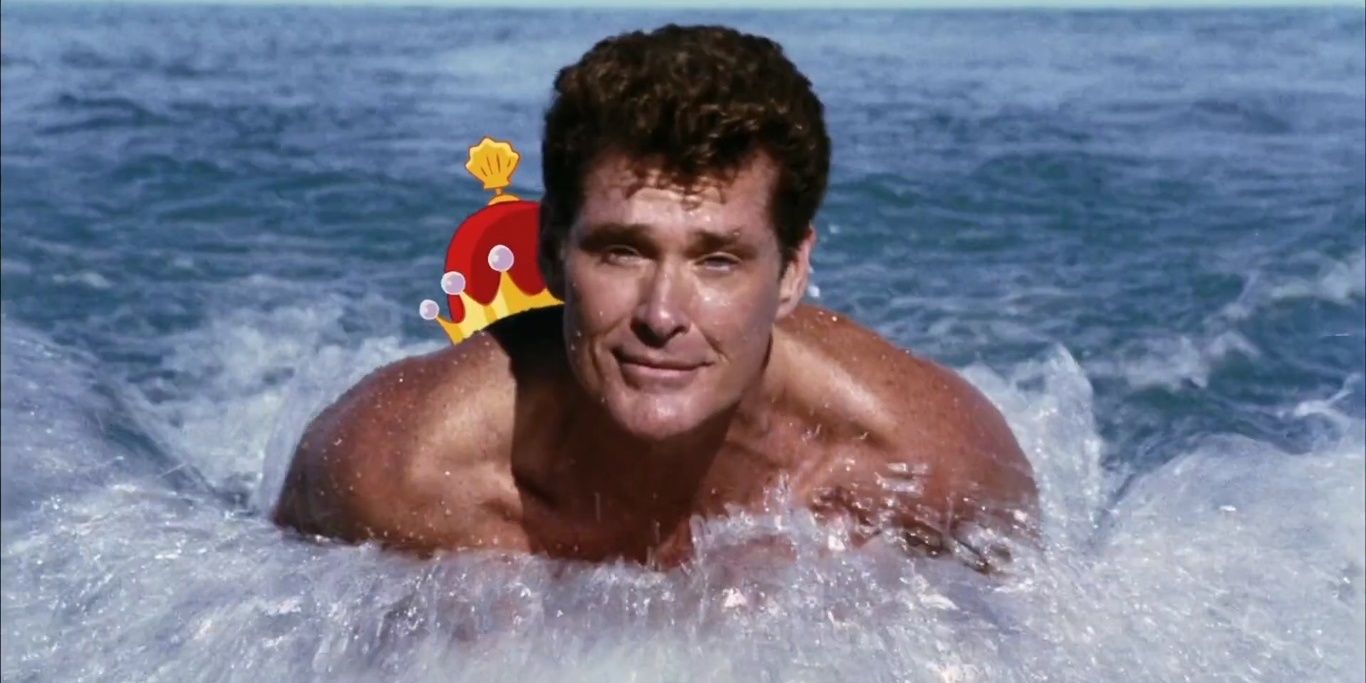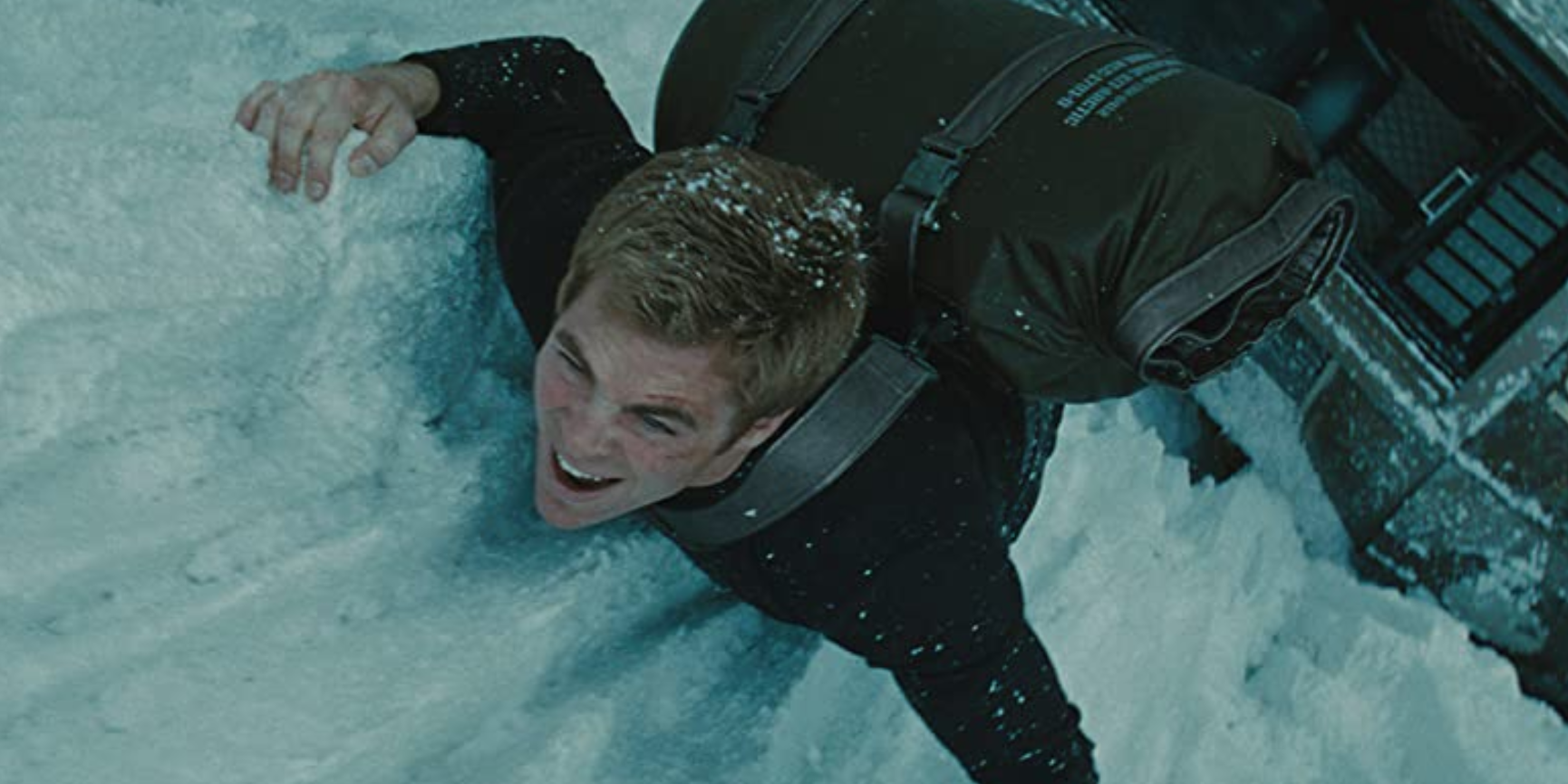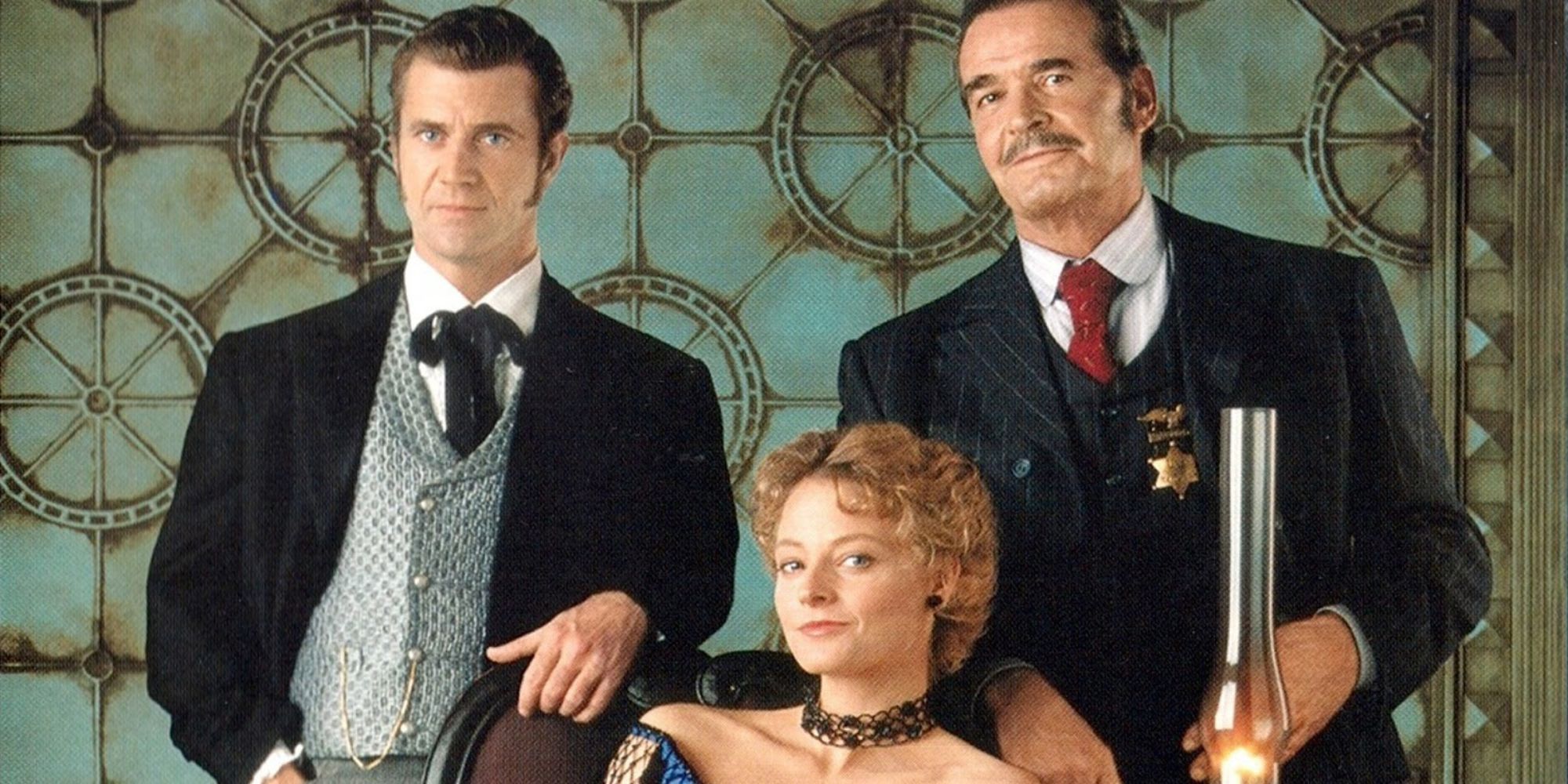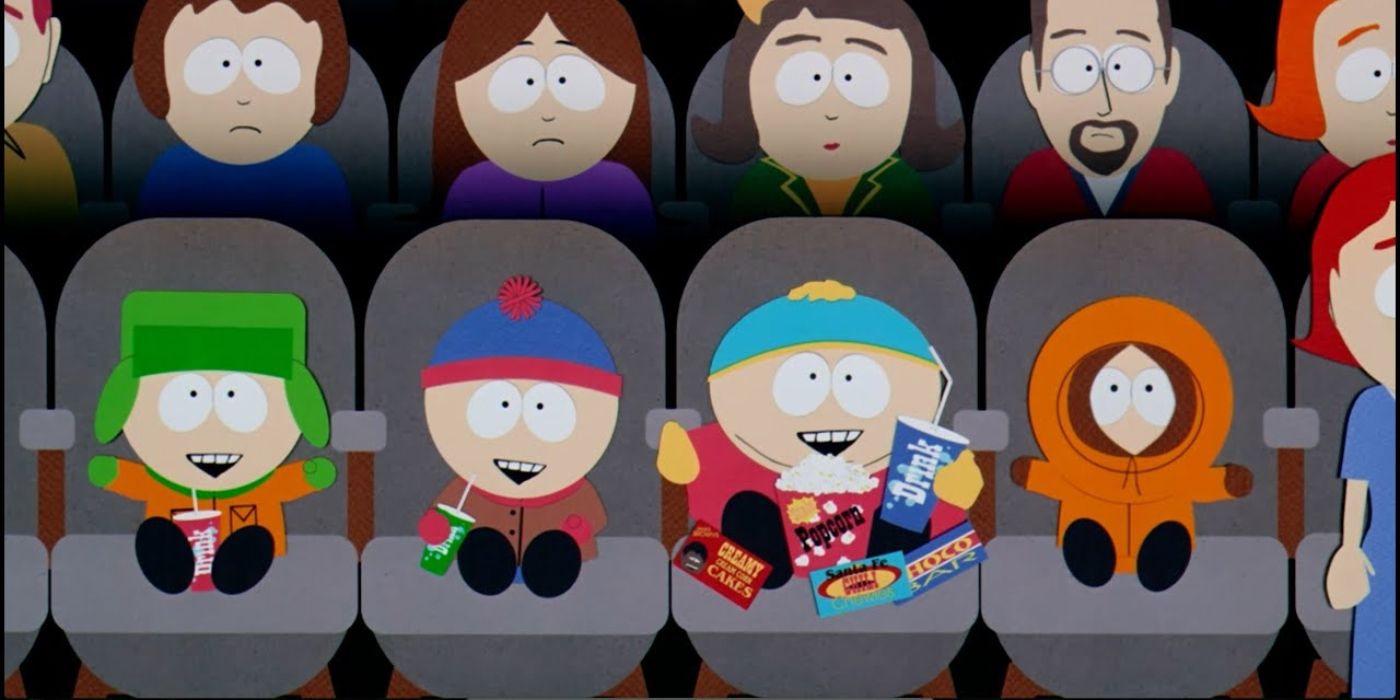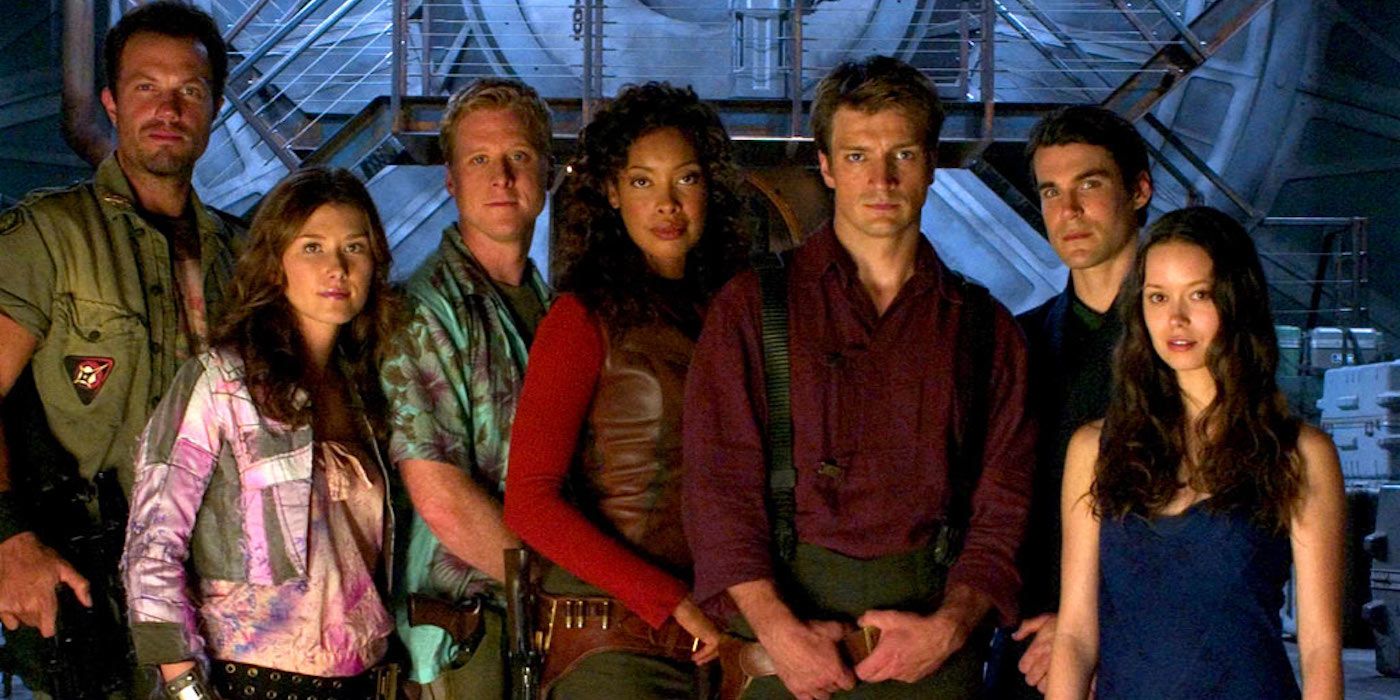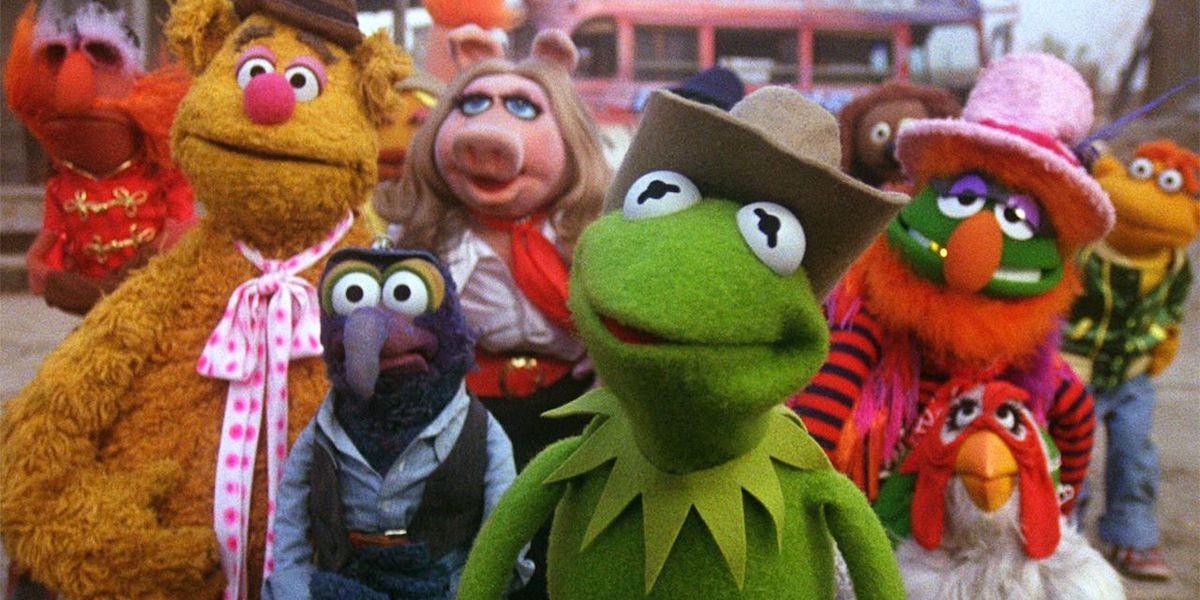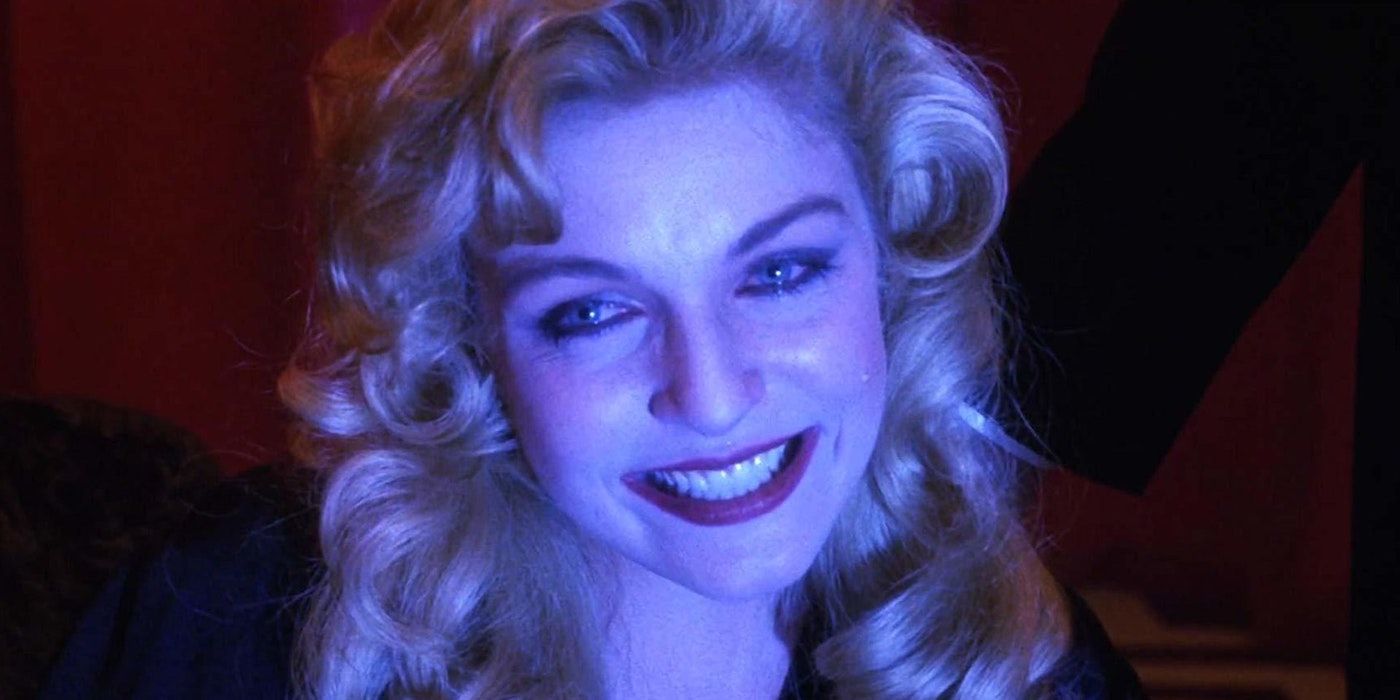The act of creating a movie based on a TV show has often been derided as a lack of imagination, the result of a Hollywood that doesn’t know how to create original features anymore. Arguably, that pessimistic view isn't entirely wrong. Movie history is littered with films that took bits and pieces from the TV series they're based on without bringing over its heart, like The Beverley Hillbillies, and/or doing anything original with the premise (1998's Lost in Space, we're looking at you). But when it works? Magic. Look no further than the overwhelming success of the Mission: Impossible franchise, for example. Here are a few samples of the number of big-screen hits from TV screen bits.
Mission: Impossible (1996)
Speaking of Mission: Impossible, it's highly unlikely that anyone would have imagined that the espionage series that ran from 1966 to 1973 (and for another two seasons in 1988) would launch a 6-film (soon 8-film) franchise, where each entry outperforms its immediate predecessor in almost every way. Yet it did, beginning with Mission: Impossible in 1996, with the two-part Mission: Impossible - Dead Reckoning coming soon, Part One in 2023, and Part Two in 2024. The films kept the premise of the show, where a small, covert team of secret espionage agents known as the Impossible Missions Force would use cutting-edge methods and means to thwart hostile forces, and simply upped the ante. It certainly doesn't hurt that actor Tom Cruise, as agent Ethan Hunt, has pushed the limits of death-defying stunts with each installment.
Borat! Cultural Learnings of America for Make Benefit Glorious Nation of Kazakhstan (2006)
Da Ali G Show (2000-2004) features comedian Sacha Baron Cohen playing the role of three journalists: Ali G, an exaggerated streetwise poseur; Brüno Gehard, a gay Austrian fashion reporter; and Borat Sagdiyev, a journalist from a fictional version of Kazakhstan. In it, Cohen would conduct interviews, in character, with random people - celebrities, government officials, etc. - and ask absurd, ridiculous questions. Borat! and its 2020 sequel, Borat Subsequent Moviefilm, sees Cohen reprise the character and travel through the US in an old ice cream van, interviewing and interacting with Americans in unscripted clips. It's another example of the premise of the show being kept but extremely amped up, with both films courting controversy and real-life danger for the actor (and making some serious coin to boot).
The Brady Bunch Movie (1995)
How do you take a television classic like the wholesome 1969-1974 series The Brady Bunch and make it work for mid-90s audiences? You don't change a thing. The Brady Bunch Movie and its 1996 sequel A Very Brady Sequel (and a 2002 TV film The Brady Bunch in the White House best forgotten) left the beloved family in their iconic 1970s lives - home, decor, speech, clothing - and placed them smack dab in the 1990s. It's like seeing fish out of water, only the fish don't know they're out of water and, more importantly, don't even care, sticking to the old-fashioned values that the family exemplified for so many years on the small screen. The premise works, delivering a very funny film where, ironically, the elements of the 1990s are now more dated than the Brady's.
Wayne’s World (1992)
Wayne's World was born not out of its own television series, but rather from a recurring Saturday Night Live skit, where Wayne (Mike Myers) and Garth (Dana Carvey) would broadcast a public-access television show, waxing on hard rock bands and babes. The sketches brought phrases like "Schwing!" and "I think I'm gonna hurl" into the vernacular, but as popular as the sketches were, it was a pretty thin basis for a film... not. The transition to film succeeded in expanding the sketch into the larger outside world, following Wayne and Garth as their show goes from public access to a revamped, professional studio environment. But fame comes at a cost, leading to Wayne losing everything, and killing himself and Garth in the process, Thelma and Louise style. But that would suck donkey. Cue the Scooby-Doo ending... no, the "mega happy ending." The film and its sequel launched even more catchphrases into society and became solely responsible for thousands of people banging their heads to Queen's "Bohemian Rhapsody" in their cars to this day.
21 Jump Street (2012)
The Fox series of 1987-1991 focused on a group of undercover police officers investigating crimes. Oh, and they all look like teenagers, and the crimes they investigate are in high schools, colleges, and other teen hangouts of the day. It was a ridiculous idea played straight, and it was a hit for a network that was still finding its way. Cue the 2012 film, with actors Jonah Hill and Channing Tatum. 21 Jump Street kept the ridiculous idea, but most definitely did not play it straight. The film is a buddy cop action comedy, with the two leads enrolled at Sagan High School to stop the spread of a synthetic drug. The definite age gap between the two and the other students is obvious, but not acknowledged, poking fun at the concept of the show.
The Naked Gun: From the Files of Police Squad! (1988)
The Naked Gun was a TV show?!? Yep, the 1982 cult classic Police Squad! ran for only six episodes before being canceled, allegedly because the viewers had to pay too much attention to the show to understand the jokes. The show took the humor of Airplane!, with its never-ending run of sight gags, puns, and more, and applied it to a parody of police procedurals, with standout Airplane! actor Leslie Nielsen along for the ride as Lt. Frank Drebin. The Naked Gun carried on directly from the show, applying many of the same gags and jokes with many, many more to craft a film that had something funny on screen literally every moment of its runtime.
The Fugitive (1993)
The Fugitive series, which ran from 1963-1967, starred David Janssen as the fugitive of the title, Dr. Richard Kimble, wrongfully convicted of his wife's murder, who escapes en route to prison and begins a search for the real killer, the "one-armed man" (Bill Raisch). The crime drama was captivating, with the series finale, where Kimble is finally exonerated upon leading authorities to the real killer, being one of the most watched television episodes of all time. The film condenses the series into a fast-paced, critically-acclaimed, Oscar-winning two hours-plus runtime, featuring Harrison Ford as the haunted escapee Dr. Richard Kimble, and Tommy Lee Jones as the tenacious U.S. Deputy Marshal, Samuel Gerard, on his tail.
The Spongebob Squarepants Movie (2004)
Spongebob Squarepants first appeared on the TV screen in 1999, and the acclaimed series has grown into a hugely popular (and profitable) franchise, one of those series that became popular across generations. A movie was a no-brainer, and the first, The Spongebob Squarepants Movie, was released in 2004. It feels like a normal Spongebob Squarepants episode, only longer. The great thing about that? There are no normal Spongebob Squarepants episodes. The absurdity, chaos, cheerful optimism, drowning of sorrows with Goofy Goober's ice cream, and randomness are all in place, this time with Plankton (Mr. Lawrence) launching his fiendish Plan Z: steal King Neptune's (Jeffrey Tambor) crown, frame Mr. Krabs (Clancy Brown) for the crime, and steal the infamous Krabby Patty secret formula. It is a funny, funny film, and besides - how can one not love a movie where Spongebob (Tom Kenny) and Patrick (Bill Faberbakke) ride "the Hoff" (David Hasselhoff) back to Bikini Bottom?
The Untouchables (1987)
Based on the memoir of noted Prohibition agent Elliot Ness, The Untouchables series ran from 1959 to 1963. The show followed the exploits of Ness (Robert Stack) and his handpicked team of brave, incorruptible, and morally sound secret agents - the Untouchables of the title. The first three episodes of the series told the story of the pursuit, conviction, and imprisonment of the notorious Al Capone (Neville Brand), while subsequent episodes dramatized the underworld battle to claim Capone's throne. Eventually, even that storyline gave way to highly fictionalized episodes that saw the agents up against the likes of gangsters Ma Barker and Lucky Luciano. Brian De Palma's film wisely kept to the Al Capone storyline of the series' first three episodes, creating a taut, captivating crime film that depicted Ness' (Kevin Costner) agent recruitment and the takedown of kingpin Al Capone (Robert De Niro). The Untouchables would lead to actor Sean Connery's first Oscar, for Best Supporting Actor, while the film itself garnered an additional three nominations.
Star Trek (2009)
Star Trek began as a science-fiction series that ran from 1966-1969, following the exploits of Captain Kirk (William Shatner) and his crew aboard the U.S.S. Enterprise on a five-year mission. That five-year mission blossomed into seven additional television series, three animated series, and a whopping thirteen films: six featuring the original series cast, four featuring the cast of Star Trek: The Next Generation, and a rebooted cast - the "Kelvin timeline" - that to date has three films. All the films, especially the three most recent, starting with 2009's Star Trek, are great examples of movies being able to deliver on a scale that exceeds what television can provide. That comes at a price, with the spectacle of the big screen sacrificing the hopeful pacifism of the original series, but popular nevertheless.
Maverick (1994)
One of the more successful Western television series, Maverick (1957-1962), stood out from the pack thanks to its comedic tone and the charm of lead James Garner as traveling poker player Bret Maverick (other actors, including notable James Bond actor Roger Moore, were introduced as Maverick's brothers, but Garner is most closely associated with the show). The series had fun playing with the expectations of the western, with Maverick espousing cowardice and avoiding work as he toured by horse, stagecoach, and old Mississippi riverboats. Maverick the movie doesn't stray from what worked for the series, with a comedic and charming performance from Mel Gibson as the titular hero, en route to a five-card draw poker tournament aboard the Lauren Belle. Jodie Foster as another con artist, and James Garner, back for the film but as a lawman, are clearly having a good time with the film as well.
South Park: Bigger, Longer & Uncut (1999)
With South Park: Bigger, Longer & Uncut, Trey Parker and Matt Stone upped the ante of their controversial, but decidedly hilarious, adult-animated sitcom South Park. The profanity, the dark humor, and the satire arising from the exploits of Stan, Kyle, Eric, and Kenny (voiced by Parker and Stone) are given even more rein to skewer censorship, scapegoating and the multiple controversies that begat the show since its debut in 1997. There's a lot going on, including (in no particular order) an R-rated Terrance and Phillip film that starts a war with Canada, a dead Kenny preventing Satan and Saddam Hussein from conquering the world, an Academy Award-nominated song ("Blame Canada"), and a sentient clitoris (Mary Kay Bergman). Yes, you read that correctly.
Serenity (2005)
The cancelation of Joss Whedon's 2002 space Western series Firefly after 14 episodes remains a point of contention for many, with the move placing the show on multiple "canceled too soon" lists. The series focused on the adventures of the crew aboard Serenity, a "Firefly-class" spaceship in the year 2517. It's a world where the Alliance, a fusion of the last two superpowers on Earth (China and the US), aims to bring the hundreds of moons and planets, terraformed and colonized after the Earth is depleted of its resources, under its control. Serenity picks up from where the series left off, with the crew of the Serenity keeping psychic River Tam (Summer Glau) from being captured by an Alliance agent known as the Operative (Chiwetel Ejiofor).
The Muppet Movie (1979)
Jim Henson's Muppets rose to international fame with the 1976-1981 series run of The Muppet Show, a weekly variety show featuring Kermit the Frog (Jim Henson), and Miss Piggy (Frank Oz), along with a host of other beloved Muppet characters. The show also had a different guest star every week, and it was the place to be if you were a celebrity in the 1970s: Alice Cooper, Julie Andrews, and John Cleese were just a few of the stars that landed the coveted guest slot. The Muppet Movie arrived in theaters during the third season of the show, a fictional account of how the Muppets came together. Like its TV kin, the film was rife with a who's who of '70s stardom - Steve Martin, Telly Savalas, and Madeline Kahn, for example - amid the madcap, road-trip adventure of our furry felt friends, en route to Hollywood while being pursued by Doc Hopper (Charles Durning), who wants Kermit as a spokesperson... spokesfrog... for his frog-leg restaurants.
Twin Peaks: Fire Walk With Me (1992)
The mind trip that was the 1990-1991 series Twin Peaks had a storyline that was relatively straightforward: in the town of Twin Peaks, Washington, FBI Special Agent Dale Cooper (Kyle MacLachlan) and Sheriff Harry S. Truman (Michael Ontkean) investigate the murder of Laura Palmer (Sheryl Lee). But nothing David Lynch does is ever straightforward, so the primary detective aspect of the show has elements of the supernatural, soap operas, horror, and dark humor, and a healthy dose of weekly surrealism. Following its cancelation, Lynch directed the 1992 prequel film Twin Peaks: Fire Walk With Me, detailing the last few days of Laura Palmer's life. The film, which kept most of the cast from the series, was much darker in tone than its small-screen cousin, and proved divisive with critics, although the time since has been much kinder to the film.

